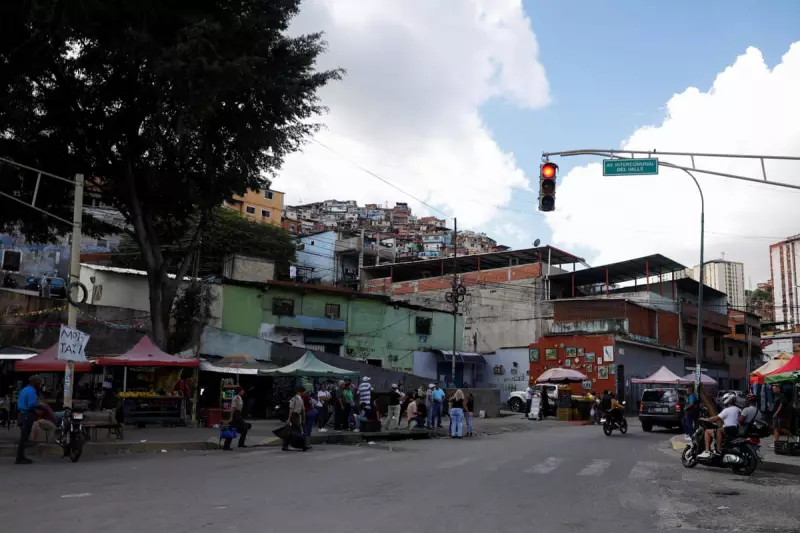
Venezuela's government has launched a fierce condemnation of the United States, accusing the Trump administration of using fabricated 'narco-terrorism' allegations as justification for regime change against President Nicolás Maduro. The escalating tensions come amid a substantial US military buildup in the Caribbean that has prompted warnings from European politicians about potential bloodshed.
US Designates Controversial 'Cartel' as Terrorist Organisation
On Monday 23rd November 2025, the US State Department took the provocative step of designating a Venezuelan group known as the 'Cartel of the Suns' as a terrorist organisation. The move has sparked widespread scepticism, with many experts questioning the very existence of the alleged cartel. Venezuelan officials immediately denounced the designation as 'a despicable lie' and 'ridiculous hogwash,' asserting that the supposed criminal network is entirely 'nonexistent.'
The Trump administration claims President Maduro leads the Cartel of the Suns, a designation that observers fear could pave the way for military intervention on Venezuelan soil. This represents the latest development in a four-month pressure campaign that Washington officially describes as targeting South American drug traffickers.
Military Buildup and European Concerns
The diplomatic confrontation has been accompanied by significant military movements. The arrival of the USS Gerald R Ford, the world's largest aircraft carrier, in the Caribbean during mid-November has intensified speculation about potential US operations against land targets within Venezuela. Since August, President Trump has ordered both a massive naval deployment off Venezuela's northern coast and deadly airstrikes on alleged narco-boats in the Caribbean Sea.
European governments have grown increasingly concerned about the situation. According to AFP reports, France and the Netherlands have joined Britain in limiting intelligence sharing with Washington due to fears about potentially illegal strikes in the region. The tension has already affected civilian air travel, with at least six major airlines suspending or cancelling flights to Caracas after the US Federal Aviation Administration warned of 'heightened military activity in or around Venezuela.'
Political Reactions and Warnings of Conflict
Prominent leftwing European figures have issued stark warnings about the escalating situation. In an open letter, former Labour leader Jeremy Corbyn, Greece's former finance minister Yanis Varoufakis, and Labour MP Richard Burgon expressed grave concerns about 'the imminent threat of US military intervention in Venezuela.'
'If the US launches a military intervention in Venezuela, it would mark the first interstate war by the United States in South America,' the politicians warned. They noted that past US military operations in Latin America linked to the 'war on drugs' had 'delivered not security but a torrent of bloodshed, dispossession, and destabilisation.'
Despite the heated rhetoric, President Trump recently signalled willingness to engage in dialogue with Maduro, stating he expected talks to occur 'in a not too distant future.' However, Reuters reported that four US officials indicated Washington was poised to launch a new phase of Venezuela-related operations in the coming days, with options including attempts to overthrow Maduro.
Amid the geopolitical standoff, ordinary Venezuelans continue their daily lives. Photographs from 23rd November show people shopping at popular street markets in Caracas, attempting to maintain normality while their country faces its latest political crisis.





